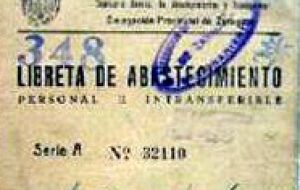MercoPress. South Atlantic News Agency
Cuba prepares for the “orderly” elimination of ration cards effective since 1962
 President Raúl Castro committed to making the Cuban economy work
President Raúl Castro committed to making the Cuban economy work The Cuban government is proposing the orderly elimination of the rations’ card according to a document prepared for the ruling party Communist Congress scheduled for April 2011.
The social policy document under the heading of “Guidelines’ project for economic and social policy” went on sale on Tuesday in Havana and is expected to be approved in the coming congress.
The document anticipates “implementing the orderly elimination of the rations card, a regulated and fair distribution system at subsidised prices”.
But the ration card favours both the needy as the non needy “promotes bartering and resale practices and encourages an underground market”.
Effective since 1962, the ration card is supposed to deliver at symbolic prices cereals, sugar, chicken, fish, eggs, rice, coffee, cooking oil, pasta and bread among other staples (when they are available) to the 11.2 million residents of the island.
But in recent months the Cuban government decided to end with the supply of potatoes and tobacco, which triggered the debate over whether the ration card should subsist or be eliminated.
“It is also important to improve ways to protect the vulnerable population or at risk because of food supply”, points out the document.
In other words this means keeping the “social food distribution system in social services, health centres and education establishments that need it” as well as in the workers mess rooms which are “essential”, but charging subsidized prices.
The closure of subsidized workers mess rooms begun in September 2009 in several ministries on a trial basis and with the purpose of cutting government expenses.
The program also includes leaving redundant half a million government employees that will be encouraged to become small entrepreneurs or self employed. Another half million will follow taking advantage of the experience collected with the first batch hoping to promote a dynamic private sector of small shop keepers and tradesmen.
These latest announcements are in the framework of other measures on economic policy undertaken by President Raul Castro since taking office and with the purpose of “up-dating” and making more transparent and realistic the Cuban economy.
Castro convened the April congress, the first since 1997, with the specific task of addressing economic policy.





Top Comments
Disclaimer & comment rulesCommenting for this story is now closed.
If you have a Facebook account, become a fan and comment on our Facebook Page!